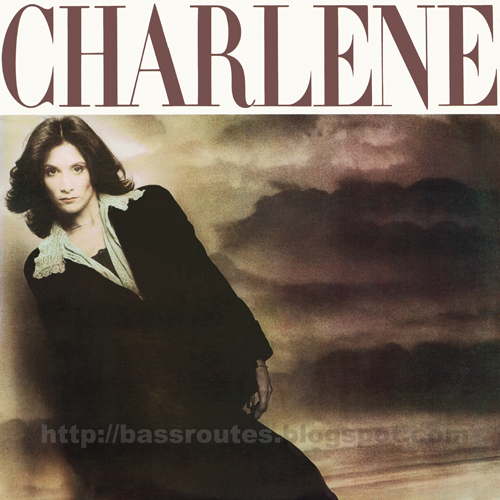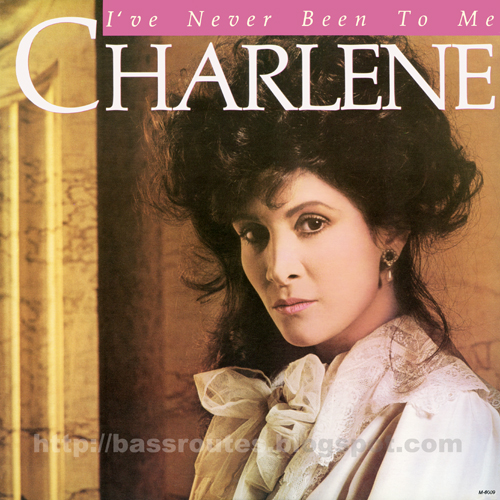Lee’s work with Charlene is linked to a number of albums being released with a peculiar paucity of production details. Actually, the LPs in question are a kind of experiment in the art of progressive repackaging. An eponymous first album was issued in 1976 and reissued the following year with one song substitution, some editing and a different title. Five years later, three selections that had been on both of these records were once again released as part of a new LP, with seven new cuts to round the album off. Some credits for the players involved were finally included in the sleeve notes, but they were not exhaustive and did not specify who played what in which tracks, nor in what period of time.
You will notice among the following credits the name of legendary sound engineer Eirik Wangberg (Erik The Norwegian). Mr. Wangberg was so kind as to supply some production details and invaluable hints as to the recording and mixing process behind these LPs. He was particularly specific, indicating that the sonic differences I spotted while comparing those tracks the albums have in common could be due to various degrees of intervention which do not necessarily imply remixing: some cuts might have been compressed during new mastering, some editing could have been done on the same mix, some old (previous) mix could have been used, etc. He suggested I should draw my own conclusions on the question of remixes.
These sonic differences have been pointed out track by track in the bottom notes, although some general structure differentiations are indicated near the song titles in the track lists. My heartfelt thanks go to Mr. Eirik Wangberg and to whomever will want to make additions. You can visit Mr. Wangberg’s website at www.eirikwangberg.com.

Charlene Duncan - Charlene
Prodigal P610015S1 (1976) - US LP
Side One
1 - It Ain’t Easy Comin’ Down - split on coda
2 - I’ve Never Been To Me - spoken voiceover on break
3 - Rings
4 - Somewhere In My Life
5 - I Want To Come Back As A Song
Side Two
6 - Hey Mama - full fade-out
7 - I Love Every Little Thing About You
8 - It’s Really Nice To Be In Love Again
9 - Shake A Hand
10 - On My Way To You
Notes: 1) Album is credited to Charlene Duncan, but only on sleeve spine. Label does not mention the surname Duncan. 2) Album was partially reissued in 1977 with the title “Songs Of Love” (see entry below) with new song “Freddie” substituted for old track “Shake A Hand” and different track order. 3) Track 2 comes with same structure as later 1982 re-release: it has a spoken voiceover on a 6-measure instrumental break before final verse. 4) Sound engineer Eirik Wangberg is credited only as mixing engineer while, in fact, he was also the recording engineer for all of the album material, with the exception of track 1, for which he only recorded the vocals. 5) According to Mr. Wangberg, although he sometimes worked at Motown Studios, the actual recording studios for the album were Sound Labs Studios in Hollywood. 6) According to some web sources there exists a version of this album entitled “It Ain’t Easy Comin’ Down” with same track order. Apart from being mentioned in Wikipedia, this piece of info has not been verifiable so far, as not a single copy of such edition is to be found for sale nor a single image of it appears anywhere on the web. 7) While Berry Gordy is thanked in the sleeve notes (as B.G.), he is not credited as executive producer. He will be on the 1977 “Songs Of Love” partial re-release (see entry below). 8) Album does not come with musician credits.
Charlene - Vocals
Produced by Ron Miller (1, 4, 5, 6, 8, 10)
Produced by Ron Miller, Berry Gordy, Don Costa (2)
Produced by Clayton Ivey, Terry Woodford & Mike Lewis for Wishbone
Inc. (3)
Produced by Larry Duncan (7)
Produced by Bob Gaudio (9)
Ken Hirsch - Arrangements (1, 4, 5, 6, 8, 10)
Gene Page - Arrangements (1, 4, 5, 10)
Don Costa - Arrangement (2)
Clayton Ivey - Arrangement (3)
Terry Woodford - Arrangement (3)
Mike Lewis - Arrangement (3)
Dennis Provisor - Arrangement (7)
David Blumberg - Arrangement (9)
Eirik Wangberg - Mixing Engineer (as “Eirik The Norwegian” Wangberg)
Recording Studio:
Motown Recording Studio, Hollywood, California 90028
Greg Morton - Master Engineer
Personal Management: Nancy Lynn Leiviska, 15515 Sunset Blvd., Pacific Palisades 90272
Carl Overr - Graphics Director
Charles Bush - Photography
Nikki Oliver - Clothes By
“Special thanks to Ron Miller for your patience, Kenny for your sweet melodies, Eirik for that special touch, Larry for the years I will always remember, Nancy for believing in “big dreams,” Chadney for understanding your Mom, and thank you Sister, Mom & Dad. // A very special thanks to “the Wizard” whose presence is mystical, whose wisdom is so valuable and whose time is precious. Thank you B.G.”.
Songwriters:
Carol Carmichael
Alex Harvey
Ken Hirsch
Ron Miller
Eddie Reeves
Stevie Wonder
●
source/pic: my records

Charlene - Songs Of Love
Prodigal P610018S1 (1977) - US LP
Side One
1 - It Ain’t Easy Comin’ Down - same 1976 mix, split on coda
2 - I’ve Never Been To Me - edit version (no spoken voiceover, shorter break)
3 - Rings
4 - Somewhere In My Life
5 - Hey Mama - shortest fade-out
Side Two
6 - Freddie - new track
7 - I Love Every Little Thing About You
8 - It’s Really Nice To Be In Love Again
9 - I Want To Come Back As A Song
10 - On My Way To You
Notes: 1) As is also indicated on sleeve notes, album is a partial reissue of the “Charlene” LP (see entry above), with new song “Freddie” substituted for old track “Shake A Hand” and different track order. 2) Track 2 comes with no voiceover in the instrumental break. Break itself is 4-measure and not 6-measure long. 3) Track 5 has a much shorter fade-out than on the 1976 LP. Other than that, version of song is the same. 4) Sound engineer Eirik Wangberg is credited only as mixing engineer while, in fact, he was also the recordist for all of the album material, with the exception of track 1, for which he only recorded the vocals. 5) According to Mr. Wangberg, although he sometimes worked at Motown Studios, the actual recording studios for the album were Sound Labs Studios in Hollywood. 6) Arrangement of track 7 is credited to James Carmichael and Larry Duncan and not to Dennis Provisor as was the case for the 1976 LP. Yet, version of song is the same. 7) Album does not come with musician credits.
Charlene - Vocals
Produced by Ron Miller (1, 4, 5, 6, 8, 9, 10)
Produced by Ron Miller, Berry Gordy & Don Costa (2)
Produced by Clayton Ivey, Terry Woodford & Mike Lewis for Wishbone, Inc. (3)
Produced by Larry Duncan (7)
Berry Gordy - Executive Producer
Ken Hirsch - Arrangements (1, 4, 5, 6, 8, 9, 10)
Gene Page - Arrangements (1, 4, 9, 10)
Don Costa - Arrangement (2)
Clayton Ivey - Arrangement (3)
Terry Woodford - Arrangement (3)
Mike Lewis - Arrangement (3)
James Carmichael - Arrangement (7)
Larry Duncan - Arrangement (7)
Eirik Wangberg - Mixing Engineer (as Eirik “The Norwegian” Wangberg)
Recording Studio:
Motown Recording Studios, Hollywood, California
Frank DeLuna - Mastering Engineer
Mastering Studio:
A&M Studios, Hollywood, California
Personal Management: Nancy Lynn Leiviska, 15515 Sunset Boulevard, Pacific Palisades, CA 90272
Patrick Nagel - Illustration (as Pat Nagel)
Carl Overr - Graphics Director
“(Portions of this album previously released under the title “Charlene” P6-10015S1)”.
“Special thanks to Ron Miller for his patience, Kenny for his sweet melodies, Eirik for that special touch, Larry for the years I will always remember, Nancy for believing in “big dreams,” Chadney for understanding her Mom and thank you, Sister, Mom & Dad. // A very special thanks to the “Wizard” whose presence is mystical, whose wisdom is so valuable and whose time is precious. Thank you B.G.”.
Songwriters:
Alex Harvey
Ken Hirsch
Ron Miller
Eddie Reeves
Stevie Wonder
●
source/pic: my records

Charlene - I’ve Never Been To Me
Motown 6009ML (1982) - US LP
Side One
1 - I’ve Never Been To Me - 1976 version
2 - It Ain’t Easy Comin’ Down - alternate sound positioning, no split on coda
3 - Can’t We Try - new song
4 - Hungry - new song
5 - Hey Mama - medium fade-out
Side Two
6 - I Won’t Remember Ever Loving You - new song
7 - Johnny Doesn’t Love Here Anymore - new song
8 - After The Ball - new song
9 - I Need A Man - new song
10 - If I Could See Myself - new song
Notes: 1) Album is a 1982 new release with three tracks (1, 2, 5) taken from the 1976 “Charlene” and 1977 “Songs Of Love” albums (see entries above). 2) Track 1 is same version as on 1976 LP. 3) Track 2 is probably a remixed version with some differences in stereo positioning and a different coda structure (see notes below). 4) There are or might be some blatant discrepancies, as far as credits go, emerging from the comparison of these three separate LPs. I have limited myself to reproducing what the credit notes read and have no responsibility for these. 5) Album does not come with track-by-track musician credits. 6) Canadian pressing on Motown M6009 comes with a different cover art and some more technical credits, but still no track-by-track musician credits. This alternate cover art was later adopted for CD re-releases. Whether it is specific of the Canadian release or if it was also adopted for US LP releases it is unbeknownst to me. 7) Tech credits (only on Canada release) list Eirik Wangberg as recording engineer and Russ Terrana as mixing engineer. According to Mr. Wangberg, both recording and mixing for the previous and current LP tracks were done by him, with the exception of “It Ain’t Easy Comin’ Down” for which he was the mixing engineer and the recording engineer for the vocals only.
Charlene - Vocals
Leland Sklar - Bass
Wilton Felder - Bass
Ed Greene - Drums
Lee Ritenour - Guitar
Ben Benay - Guitar
Art Munson - Guitar (as Artie Munson)
Jay Graydon - Guitar
Ken Hirsch - Piano
Reginald “Sonny” Burke - Electric Piano
Gary Coleman - Percussion
Produced by Ron Miller, Berry Gordy & Don Costa (1)
Don Costa - Arrangement (1)
Ken Hirsch - Arrangements (4, 5, 6, 7, 8, 9, 10), Rhythm Arrangements (2, 3)
Gene Page - String Arrangements, Horn Arrangements
Ron Miller - Background Vocal Arrangements
Charlene - Background Vocal Arrangements
Johnny Lee - Art Direction
Terry Taylor - Design
“Some selections have been previously released.”.
US LP Additional Credits
Sue Reilly - Photo Tinting
Canada LP Additional Credits
Eirik Wangberg - Recording Engineer
Russ Terrana - Mixing Engineer
Fred Law - Assistant Engineer
John Matousek - Mastering Engineer
Richard Haughton - Photography
Track 6:
“(For Tommy Baird)”.
Songwriters:
Ken Hirsch
Ron Miller

“I‘ve Never Been To Me” - Canada LP - alternate cover art
●
source/pics: my records
Main Sonic/Structural Differences of Shared Songs
“I've Never Been To Me”
Instrumental break
1976/1982 - 6 measures with spoken voice-over.
1977 - 4 measures without spoken voice-over.
Coda
1976/1982 - Shorter coda as fade-out has 4 repeated blocks, with last audible phrase before total fade-out: “…who could have made me complete”.
1977 - Longer coda as fade-out has 5 repeated blocks, with last audible phrase before total fade-out: “…anywhere I could run, I've been to paradise”.
Drums
1976/1982 - Stereo positioning of snare plus general high-end of drum-kit towards right channel/drums volume seems somewhat louder in mix.
1977 - Stereo positioning of snare plus general high-end of drum-kit towards left channel/drums volume seems somewhat softer in mix.
Vocals
Vocal performance seems to be the same in all of the three mixes with what could be a punch-in on 2nd stanza right at the start of the “(…) Cause I have this need to tell you (…)” line.
“Hey Mama”
Effects
1982 mix has higher level of reverb than the 1976 and 1977 cuts.
Coda
1976 - chorus sung 4 times, fades out completely just before 4th modulation.
1977 - chorus sung 3 times, fades out completely one second earlier than 1982.
1982 - chorus sung 3 times, fades out completely one second later than 1977.
“It Ain't Easy Comin' Down”
Tremolo
(On intro and before 2nd stanza) It is softer in volume on 1982 mix but stereo positioning is the same (left).
Instrumental break
1976/1977 - 8 measures, first 4 without drums/strings over electric bass solo bits have no chorus effect.
1982 - 8 measures, first 4 without drums/strings over electric bass solo bits do have added chorus effect.
Coda
1976/1977 - After instrumental break, Charlene sings an almost complete chorus up to “…but suddenly I found it's comin' - ” then the verse is truncated and it segues straight into the phrase “Ain't easy comin' down, no it…” sung 4 times until total fade-out.
1982 - After instrumental break the chorus part has been edited out and Charlene sings “It ain't easy comin' down, no it…” for 6 and a half times before total fade-out.
Drums
1976/1977 - Stereo positioning of rim-shots plus general high end of drum-kit is towards left.
1982 - Stereo positioning of rim-shots plus general high end of drum-kit is towards right.
Vocals
Different type of reverb on 1982 mix than 1976/1977.

Bookmark this on Delicious
No comments:
Post a Comment